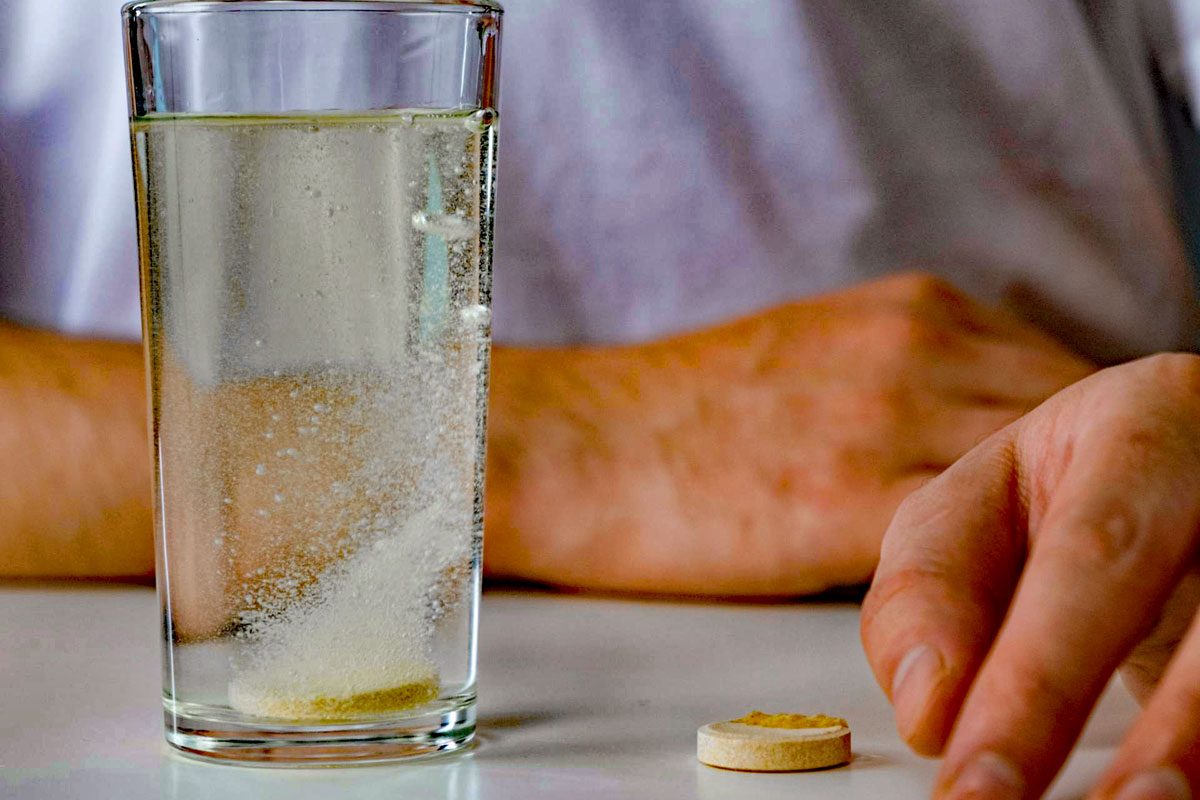A New Year, New Hopes, And The Jojo Effect Lurking
Topping the list of good intentions is always the pledge to lose weight, a resolution that seems to gain even more traction each year. Polls for 2009 indicated that one in three people had a desire to reduce their body weight. The impulse grows strongest right after Christmas, when many of us realize we have stuffed in more calories than our poor bodies could ever possibly need. Yet for countless individuals who have tried everything and are frankly weary of low-carb and endless weight-loss programs, a fresh perspective arrives via Fitness.com with an intriguing message: the macrobiotic diet is here, and the dreaded Jojo effect belongs in the past. Some might raise an eyebrow at this notion, but those familiar with macrobiotics know it’s not just a fleeting fad. The macrobiotic lifestyle endeavors to achieve harmony by balancing nutrition with philosophical underpinnings that date all the way back to ancient Greece, when “macros” meant “high” and “biotikos” indicated “life.” The question is whether such a diet of the celebrities can truly do the trick when so many other regimens have failed. Is it possible that a philosophy combining Eastern perspectives on yin and yang with Western knowledge of biology and chemistry could see us through the post-holiday bloat?
The Mysterious Origin Of Macrobiotics
The macrobiotic diet isn’t a strict “diet” the way most people imagine it, but rather a holistic lifestyle that also includes dietary guidelines. The term itself traces back to ancient Greece, although it was the Japanese doctor Ishizuka (1850–1910) who fathered the concept in its modern form. In the late 19th century, Ishizuka proposed a fusion of Far Eastern philosophy and Western science—biology, chemistry, medicine—to promote a way of eating known as Shoku-Yo, or “healing through food.” He criticized Western incursion into Asian diets, urging a return to traditional Japanese culinary habits brimming with whole, unprocessed foods. He insisted on avoiding milk and other processed animal products, championing whole grains (or Vollgetreide, as the German texts would label it) as humanity’s fundamental nourishment. In his thinking, the entire universe is shaped by two opposing forces: yin and yang. True health arises only by establishing harmony between the two, with sugar, fruit, and potassium falling under yin, while salt, cereals, and sodium align with yang. If one tilts too heavily in either direction, the body teeters off balance, risking illness or malaise. Ishizuka’s ideas, while sweeping, found an eager follower in George Ohsawa, another Japanese figure whose movement gained popularity in Europe and beyond. Ohsawa claimed that as a teenager he had overcome tuberculosis by adopting a Shoku-Yo-based regimen. For him, a lifetime of simple, whole grains and fresh vegetables powered by yin-yang equilibrium apparently spelled freedom from many modern ailments. He cited the famously lengthy lifespans of certain Zen Buddhists as proof that this approach wasn’t just myth. More recent English-language research has brought a new wave of interest in diets rich in whole grains and low in processed products, pointing out that these patterns often correlate with better metabolic markers and lower risks of chronic disease.
What Macrobiotics Looks Like On Your Plate
The macrobiotic diet rests primarily on whole grains that are milled, crushed, or transformed into flour for easy consumption. Ideally, these grains account for roughly half of your total daily intake. The rest typically includes fresh vegetables, beans, nuts, seeds, and a modest portion of fruit. Meat is typically out, replaced by fermented soy products to fulfill protein requirements. Seaweed-based items also factor into many macrobiotic menus, lending a dash of oceanic flair to an otherwise terrestrial meal plan. On the flip side, certain foods are strictly off-limits, among them milk, potatoes, tomatoes, eggplants, and sugar. Ideally, the produce you do eat should be organic and locally sourced, reflecting the notion that harmony with your immediate environment fosters the yin-yang balance in your body. Despite its philosophical elegance, though, macrobiotic eating has faced some modern medical scrutiny in English-speaking circles. Certain professionals caution that a strict macrobiotic regimen can lead to vitamin B12, vitamin D, calcium, and iron deficiencies if not carefully balanced. According to many nutritionists, younger children, in particular, might miss essential nutrients. Still, the diet’s emphasis on plenty of grains, fresh vegetables, and minimal sugar can be beneficial. It’s a bit like discovering your sweet tooth is actually your worst enemy—then promptly showing it the door. While macrobiotics might not make you Jedi-level invincible, there’s no question that eliminating processed goodies and focusing on unrefined staples can lead to healthier eating patterns overall.
Escaping The Jojo Effect And Finding A Sustainable Way
Everyone who has ever attempted to diet long-term has probably stumbled upon the Jojo effect, that pesky cycle of shedding pounds only to regain them. Or worse, regaining extra on top. This phenomenon typically stems from crash diets that are simply too grueling to maintain. The body, sensing starvation, clings to every morsel it can get once the diet ends, leading to the dreaded yo-yo pattern. The macrobiotic stance is that you shouldn’t be “dieting” at all in the short-term sense. Instead, you align your everyday eating with the rhythms of the universe—or at least with organic, nutrient-dense fare that keeps your metabolism stable. Modern English medical research often points out that building sustainable habits can be more effective for long-term weight control than any short-lived calorie slash. By preventing huge insulin spikes and prioritizing slow-burning energy sources, the macrobiotic approach stands a decent chance of circumventing that typical roller-coaster of hunger, binging, and disappointment. At the same time, it’s important to remain vigilant about potential nutritional gaps, especially if you rigorously exclude multiple categories of foods. The good news is that if you are flexible and occasionally include more variety, you can adapt macrobiotics to modern life without facing severe vitamin deficits. The synergy between natural, unprocessed ingredients and moderate portion sizes means you’re less likely to inhale the sort of empty calories that often doom lesser diets. There is, however, that extra dash of mysticism some find appealing—an intangible sense of connection between mind, body and cosmos that an all-you-can-eat pizza buffet just doesn’t deliver.
Practical Tips For Navigating Macrobiotics
A strict macrobiotic regimen can seem daunting, especially if you grew up with cereal boxes, sugary beverages, and fast-food pit stops on every corner. Even so, leaning into its core tenets can provide a refreshing reset. Substituting whole grains for white bread, opting for water or green tea over soda, and easing back on processed meats can reap huge health gains without feeling like you’ve joined a monastery. If you’re worried about missing out on calcium or B12, you can discuss with a healthcare provider about adding supplements or slightly broadening your acceptable foods to include certain fortified products. Indeed, balancing the wisdom of Ishizuka and Ohsawa with current scientific insights might be the best path for most modern practitioners. Many in the English-based medical field admire the macrobiotic vow to cut back sugar and refined carbohydrates, but they urge caution about removing entire food groups—especially for children or pregnant individuals who need diverse nutrients. Meanwhile, simply adopting some macrobiotic ideas can keep the post-Christmas guilt in check while mitigating the Jojo effect. Those who consistently choose brown rice instead of white, leafy greens instead of starchy fries, and local produce over packaged sweets often see real progress in weight management and general well-being. On top of that, there’s an appealing sense of mindfulness and serenity that flows from focusing on the origins and nature of your food.
Moving Forward With A Balanced Perspective
Even if you never fully embrace the macrobiotic lifestyle, incorporating elements of it—particularly the emphasis on whole grains, vegetables, and limited sugar—can have positive health implications. Research has shown that modest dietary changes can lower the risk of metabolic disorders and assist in sustaining healthy body weight over the long haul. The macrobiotic ethos, shaped by ancient Eastern philosophies and refined by Western science, offers a peaceful alternative to the typical diet drama. Rather than obsessing over calories or chasing the hottest “miracle plan,” you build a foundation of unprocessed, regionally sourced foods. This might not turn you into Aristotle or a Zen master, but it can grant a stable platform for your body’s nutritional needs. So, the next time you feel the post-holiday bulge prompting a frantic search for crash diets, remember that macrobiotics invites a gentler path. You don’t have to starve yourself, nor do you need to gorge on bland kale forever. You simply follow what the ancient Greek philosophers and Zen Buddhists recommended: find balance, reject extremes, and eat with an appreciation for the vital forces shaping your food. With that, the Jojo effect may just become a relic of the past as you step into a more harmonious culinary approach.













